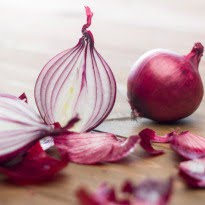
“So I’ve suitable information and bad news,” the gastroenterologist advised Paul Graham, sounding as though he have been telling an unoriginal shaggy dog story. “Your situation is totally curable. But you’re no longer going to just like the treatment.”
Graham, a 36-12 months-old English professor in Upstate New york, had exhibited an increasingly excessive variety of signs and symptoms – diarrhea, bloating, anemia, drastic weight reduction, twitches, tremors. The GI medical doctor told him he had a critical case of celiac ailment. If he cut out wheat, rye, barley, spelt and oats, he’d be nice, likely, in some years. If he failed to, the agony could worsen, and extra critical headaches, together with lymphoma, should arise.
It wasn’t just that a whole lot of Graham’s Favorite things involved gluten in a few shape, from his spouse’s brilliant home made bread (he ought to consume a loaf an afternoon) to his after-softball beer (and he became studying to domestic-brew!). He soon found out that he might should abandon “Western civilization’s most vital culinary and agricultural culture,” a background so wheat-centric that “breaking bread” manner having a meal.
Overnight, he writes, the entirety modified: “In a experience, I used to be now not the same man or woman.”
The primary shape of Graham’s new memoir, “In Memory of Bread” is the every so often humorous, from time to time poignant chronology of how he cured himself. Taking his “farewell tour-du-wheat,” he permit himself have a very last Reuben sandwich and a beer, which made him unwell and then rueful: “I was ashamed: of my stupidity, of my weak point, of the reality that I couldn’t deal with what I had just been told by way of my physician, and it wasn’t even that terrible. I didn’t have cancer; I did not have Crohn’s . . . .” Later, he could hardly ever face his first birthday and not using a birthday cake. And he recalls the moment he felt his fitness returning: He listened to a much Davis recording of “Bye-Bye Blackbird” and realized it changed into the first time music had sounded true in six months. “Something in my mind and in my body had cleared, recovered, been cleansed.”
His story is broadened and made some distance greater thrilling with a huge-ranging, well-researched dissertation on wheat, concerning records, tradition, chemistry and agriculture. (The epigraph is a quote from George Orwell: “I assume it could plausibly be argued that changes of food plan are greater critical than modifications of dynasty or maybe of religion.”)
The true hero of the book can be Graham’s wife, Bec. As soon as the gastroenterologist suggested his verdict and sentence, she promised her husband, “Of direction, I will do that with you.” And she or he did, voluntarily, meal via gluten-free meal. Extra love hath no one.










